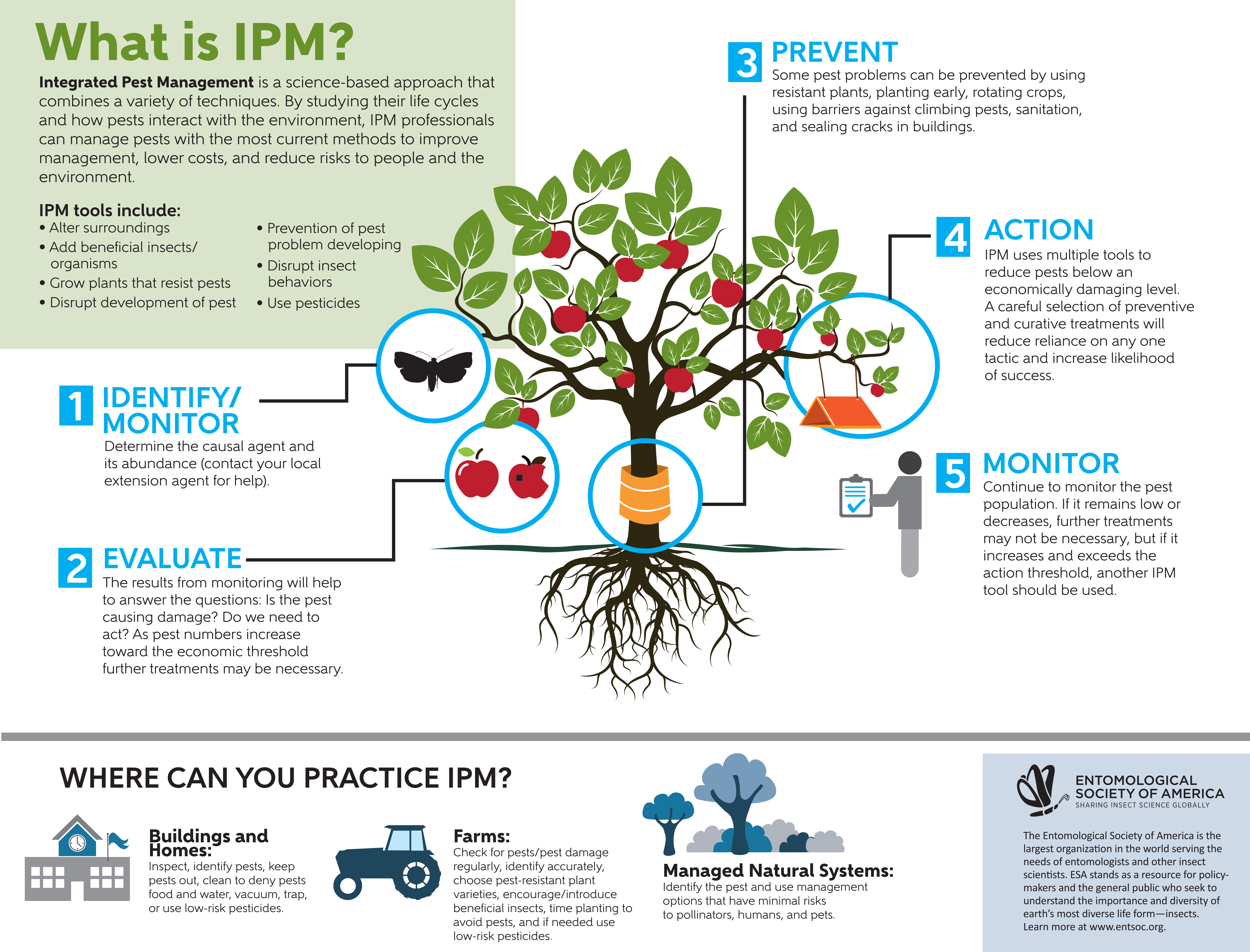The Secrets Of Bug Control Pros! Release The Power Of Advanced Strategies And Say Goodbye To Pesky Insects Completely
The Secrets Of Bug Control Pros! Release The Power Of Advanced Strategies And Say Goodbye To Pesky Insects Completely
Blog Article
Authored By-Damgaard Hendriksen
Are you tired of depending exclusively on sprays to deal with parasites in your house or work environment? While sprays can be effective, pest control experts have created sophisticated techniques that surpass just splashing chemicals.
These methods not only offer much more efficient and lasting remedies, but likewise concentrate on reducing the use of dangerous chemicals. By discovering these innovative methods, you will certainly uncover an entire brand-new world of parasite control approaches that are not only reliable, however additionally eco-friendly.
So, are you all set to take your pest control video game to the following level?
Integrated Insect Management (IPM)
If you're trying to find a reliable and environmentally-friendly approach to pest control, Integrated Insect Administration (IPM) is the solution you need. IPM concentrates on long-term avoidance and monitoring of pests, instead of simply counting on pesticides. This approach takes into consideration the specific requirements and habits of insects, as well as the surrounding environment.
By using a mix of techniques such as biological control, habitat adjustment, and targeted chemical usage, IPM intends to reduce the dependence on chemical treatments and reduce harm to non-target microorganisms.
One crucial aspect of IPM is checking and identifying parasites accurately. This includes on a regular basis inspecting and assessing the pest population, along with determining the particular types present. By comprehending the biology and actions of bugs, parasite control specialists can create targeted approaches to disrupt their life process and lower their numbers.
Another essential element of IPM is making use of non-chemical control techniques whenever possible. This can consist of physical obstacles, such as installing screens or sealing fractures and holes, to avoid parasites from going into structures. In addition, cultural practices, like proper hygiene and waste monitoring, can help get rid of bug food resources and breeding grounds.
When pesticides are required, IPM focuses on using them sensibly and as a last option. This implies picking the least toxic and most reliable alternative, applying it precisely and only to affected locations, and adhering to all security standards. By decreasing chemical usage, IPM lowers the potential dangers to human health and wellness and the atmosphere.
Biological Control
To even more enhance the effectiveness of Integrated Insect Administration (IPM), the following subtopic we'll explore is the technique of biological control. This technique makes use of natural predators or parasites to control parasites.
Right here are four crucial facets of organic control:.
1. Intro of natural enemies: In this technique, valuable insects or microorganisms are presented to the location infested with bugs. These all-natural adversaries prey on the pests, aiding to minimize their population.
2. Conservation of all-natural opponents: Instead of presenting brand-new microorganisms, this strategy focuses on producing a suitable setting for existing advantageous pests. This can be attained through offering food, shelter, and water resources.
3. Enhancement: Below, the number of natural opponents is enhanced unnaturally by reproducing and releasing them right into the plagued location. This aids to quickly lower the pest populace.
4. Push-pull strategy: This strategy combines repellents and attractants to manipulate the behavior of insects. Repellents push pests far from plants, while attractants tempt them towards trap crops or areas where they can be quickly managed.
Environment Alteration
Environment alteration plays an important duty in insect control by changing the atmosphere to inhibit pest infestations. By making changes to the physical attributes of a room, you can create an unwelcoming setting for insects, making it harder for them to survive and thrive.
One common approach of habitat alteration is removing or minimizing potential food sources for insects. This can consist of proper waste management, sealing containers, and cleaning up food crumbs.
Furthermore, eliminating or minimizing areas of standing water can aid regulate pests like mosquitoes.
Altering the landscape by cutting trees and hedges far from buildings can additionally prevent pests from accessing your building.
Final thought.
So there you have it - the innovative techniques made use of by pest control professionals exceed just spraying chemicals. Integrated Bug Administration (IPM) incorporates various methods to efficiently control bugs, while biological control uses natural opponents to maintain bug populations in check.
Learn Even more plays a vital role in stopping parasite infestations.
Did you recognize that according to a study, carrying out IPM methods decreased chemical use by approximately 71%? This not only protects our wellness and the environment however also saves cash in the long run.
